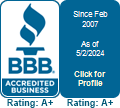|
Searching for Hidden Assets at Divorce in a New Jersey Divorce
Unreported Income and Hidden Assets
Unreported income and hidden assets are often alleged in divorce proceedings, with the spouse who is not running the business claiming that unreported income should increase both the spousal support award and the valuation of the family business. In civil litigation, it is often a partner or shareholder that is alleging that someone in his business is hiding income. The process of finding and proving unreported income or hidden assets is often one of the most difficult assignments of a forensic professional, and the costs must be weighed carefully against the potential benefits. However, in some cases, the process is much easier than one might think, as the case histories included in this article illustrate. Searching for Hidden Assets at Divorce How to find property your spouse may be concealing from you when you divorce. This list includes common ways in which a spouse may undervalue or disguise marital assets. Be advised, however, that you may have difficulty finding some items or getting the proof you need to show they exist. A forensic accountant or formal discovery procedures may help.
Get the Goods (on Paper) Before It EndsIf you suspect that your spouse may attempt to hide assets, it's best to start investigating your household and business finances before initiating divorce proceedings. Make copies of important documents such as tax returns from the past several years, bank account statements, pay stubs and any other documents that reflect joint assets or debts. Keep copies of these documents outside the home if you're still living with your spouse or partner. Also, as a precautionary measure, you might want to open a separate savings account in your name only. If your spouse hides assets, you may find yourself in need of a nest egg. Down the line, you may have to relinquish some of your savings to your spouse -- after all, we're not encouraging you deal with a dishonest spouse by stooping to his or her level -- but having a little extra cash on hand may ward off a crisis in the wake of your divorce. |
New Jersey Divorce Forms
Self-Prepared
| New Jersey Divorce | $59.00 |
| NJ MSA | $39.00 |
| NJ Divorce & MSA Combo (best value) | $89.00 |
Legal Technician-Prepared
| New Jersey Divorce | $149.00 |
| NJ MSA | $79.00 |
| NJ Divorce & MSA Combo (best value) | $199.00 |
Free custom Parenting Plan included with every purchase.









